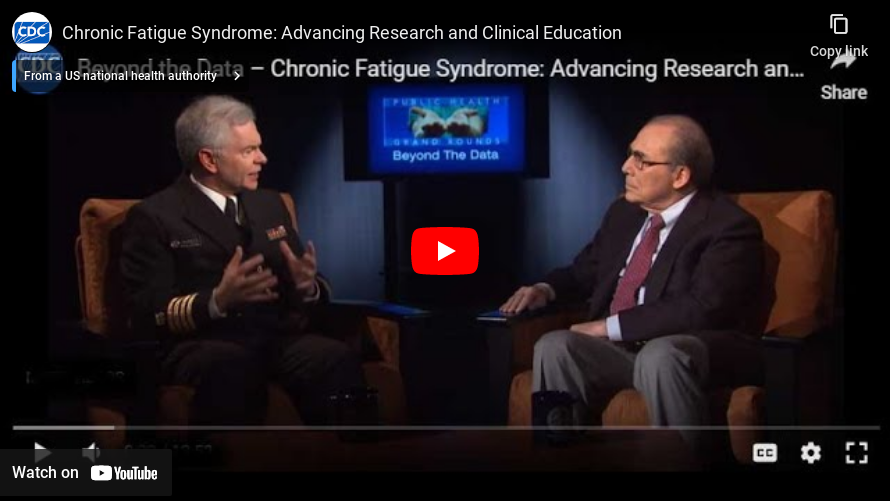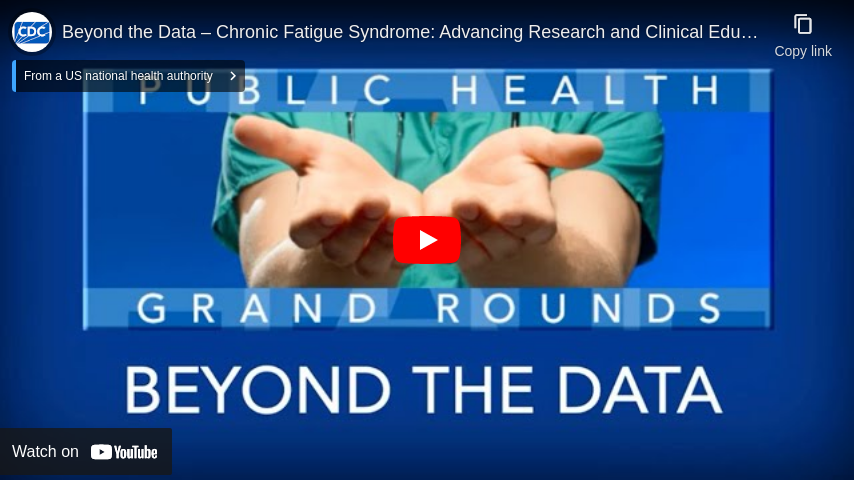Chronic Fatigue Syndrome: Advancing Research and Clinical Education
Presented on .
We may know chronic fatigue syndrome by several other names, myalgic encephalomyelitis and systemic exertion intolerance disease among them. Doctors and scientists have not yet found what causes chronic fatigue syndrome. Infections and other medical and biological events are among the many possible triggers, but with no certain cause this disease is difficult to diagnose. A systematic approach to evaluating people with persistent symptoms combined with new diagnostic criteria offers hope for more accurate and faster diagnosis.
Chronic fatigue syndrome is a devastating disorder. There is a lot about this disease that we don’t know, but what we know for sure is that patients with chronic fatigue syndrome are suffering. Patients experience not only extreme fatigue, but often many other symptoms such as impaired thinking and insomnia. This condition can persist for years, and those with chronic fatigue syndrome are often unable to work, participate in daily activities, or attend school. Over the past several years, research has shined new light on this complex condition. The Institute of Medicine is encouraging healthcare providers to look at chronic fatigue syndrome in new ways.
In this session of Public Health Grand Rounds, our expert panel of clinicians, epidemiologists, and researchers will discuss how they approach diagnosis and treatment in their own practices, how the diagnostic criteria for chronic fatigue syndrome have changed over the years, and how the public health community can continue to improve knowledge and understanding of this complex disorder.
In this session of Beyond the Data, Dr. John Iskander and Dr. Anthony Komaroff discuss the disease commonly known as chronic fatigue syndrome and the new research that’s advancing our understanding of this debilitating condition. Tune in to hear Dr. Komaroff’s take on symptoms, treatments, and where we can go from here to provide hope to those with CFS.
- Charles W. Lapp, MD
- Medical Director
Hunter-Hopkins Center, P.A.
- Elizabeth R. Unger, MD, PhD
- Chief, Chronic Viral Diseases Branch,
Division of High-Consequence Pathogens and Pathology
National Center for Emerging and Zoonotic Infectious Diseases, CDC
- Anthony L. Komaroff, MD
- Simcox-Clifford-Higby Professor of Medicine
Harvard Medical School
- Avindra Nath, MD
- Chief, Section of Infections of the Nervous System,
National Institute of Neurological Diseases and Stroke
National Institutes of Health
- John Iskander, MD, MPH
- Scientific Director
- Phoebe Thorpe, MD, MPH
- Deputy Scientific Director
- Susan Laird, MSN, RN
- Communications Director
Get notified about the latest updates from Public Health Grand Rounds right in your inbox by setting up an alert today!
Get notified about the latest updates from Public Health Grand Rounds right in your inbox by setting up an alert today!Sign Up
Get notified about the latest updates from Public Health Grand Rounds right in your inbox by setting up an alert today!
CDC Course Code: PHGR10
CPE UAN: 0387-0000-16-002-H04-P
For more information, see Grand Rounds Continuing Education.

ALS is a rapidly progressive, fatal neurological disease. Researchers don’t know what causes ALS and there is no cure. The National ALS Registry was created in 2010 to help scientists learn who gets ALS and what causes it. Learn about research, drug development, and patient care options and the role of the ALS Registry.


